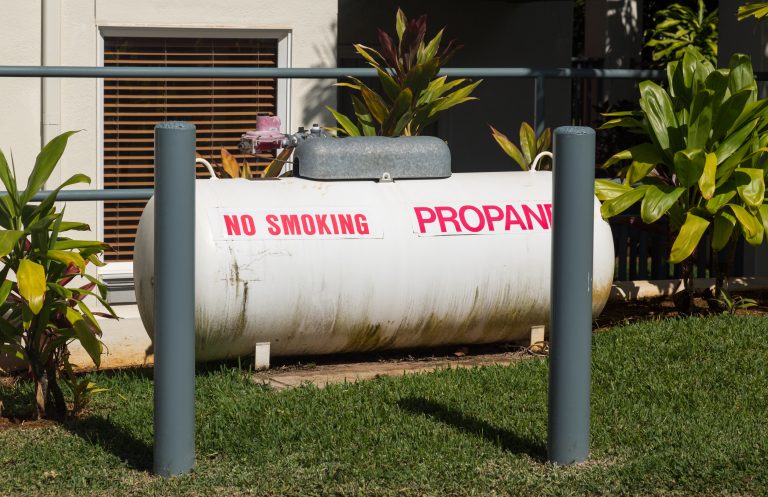Propane is one of the most common heating sources used in the United States. Created as a byproduct of refining petroleum or processing natural gas, propane is a useful and versatile product. Propane is a gas at room temperature and pressure, but under pressure can be compressed into a liquid which can make it easier to transport by rail or truck. When most people think of propane they think of heating and cooking, but propane can be used in almost any application that electric or natural gas can be used. For example, there are commercially made propane refrigerators and lighting products available on the retail market. However, regardless of how a person uses propane, it is important that propane is used in a safe manner.
Leak Detection
The most important part of propane safety is to be aware of leaks. Though propane is naturally odorless, manufacturers add an odorant into the propane to help in detecting leaks. The smell added to propane is similar to rotten eggs. Though a minimal amount of propane may be smelled when connecting lines or first starting a propane appliance, the smell should quickly go away. If the rotten egg smell continues, there is a leak. Leaks can also be heard hissing and sometimes seen in the form of escaping vapor. In any case, the home should be evacuated when a leak is found and the main propane line shutoff. The leak should be inspected and repaired by a trained professional.
Venting
Propane heating appliances need to be properly vented according to manufacturer recommendations. The outdoor vent should be periodically inspected for obstructions. Ventless heaters should never be used in sleeping areas or small rooms. Ventless heaters should only be used as a supplemental heating source and never left unattended. Propane cook stoves use such a small amount of fuel that they typically can be used without venting, but should never be used for home heating.
Carbon Monoxide Awareness
Carbon monoxide is an odorless gas that is produced during combustion of propane and other fuel sources. Carbon monoxide can cause a variety of health problems, including death. Any building having propane appliances should have carbon monoxide detectors in addition to smoke detectors. Symptoms of carbon monoxide exposure include sleepiness, nausea and confusion. In the event of carbon monoxide exposure, a person should move outside to fresh air and call 911 for assistance. Routine inspection and maintenance of propane appliances will significantly reduce the risk of carbon monoxide in a home.







